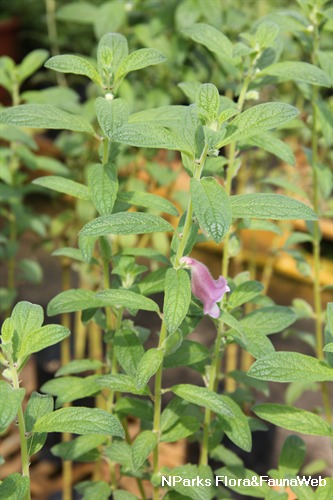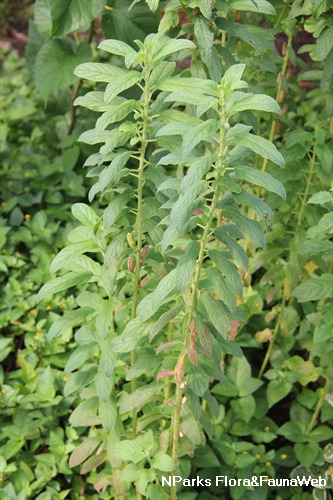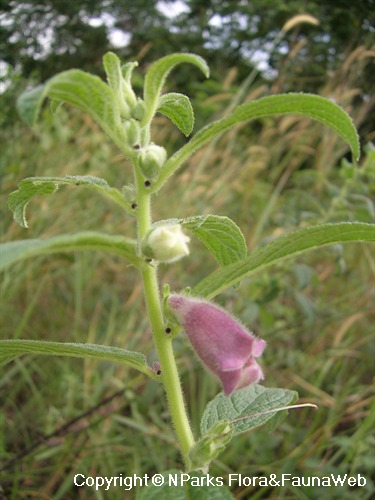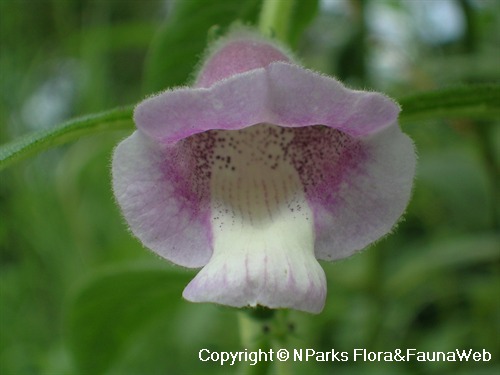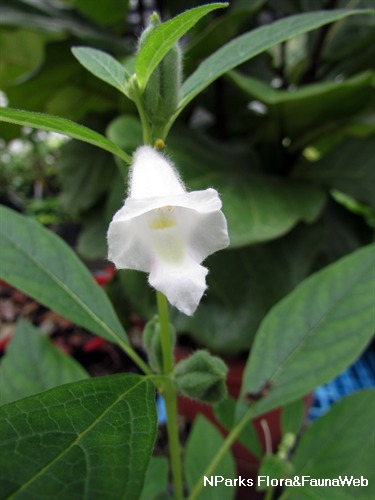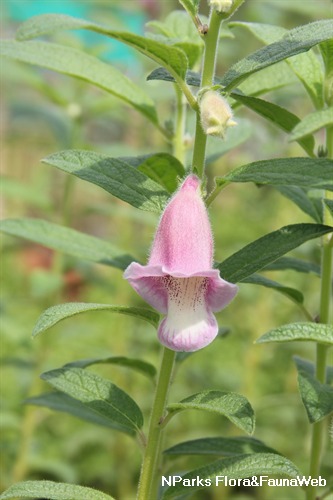
Name
Classifications and Characteristics
| Plant Division | Angiosperms (Flowering Seed Plants) (Dicotyledon) |
|---|---|
| Plant Growth Form | Herbaceous Plant |
| Lifespan (in Singapore) | Annual |
| Mode of Nutrition | Autotrophic |
| Maximum Height | 1.2 m |
Biogeography
| Native Habitat | Terrestrial (Grassland / Savannah/ Scrubland) |
|---|
Description and Ethnobotany
| Growth Form | Annual herb with erect growth form up to 1.2 m tall. |
|---|---|
| Foliage | Leaves are oblong (elongated) to lanceolate (lance-shaped). They occur in alternate leaf arrangement near the stem tip (one leaf per point along the stem, alternating between sides) or opposite leaf arrangement towards the base (paired leaves). |
| Stems | The round, light green stem is covered in short, white hairs. |
| Flowers | Pink to purple, tubular flowers occur singly in the leaf axil (the space between the upper surface of the leaf and the stem). The flowers are attached to the stem by a short stalk. The outer surface of the floral tube is covered by short, white hairs. |
| Fruit | Dry, dehiscent fruits are known as capsules. |
| Ethnobotanical Uses | Food (Fruit or Vegetable): The leaves are widely consumed as a nutritious vegetable in Benin, Africa. Nigerian farmers use the leaves, seeds and oil for food. Medicinal: In African folk medicine, the plant is used to treat constipation, bruises, male inferility and fungal and bacterial infections. Research by Gills (1992) showed that the liquid obtained by boiling a combination of roots and leaves in water has anti-fungal and anti-viral activity. Another study by Shittu (2007) showed that rats which consumed sesame leaves had more sperm-producing cells. |
Landscaping Features
| Landscape Uses | Small Gardens, Flowerbed / Border, Container Planting |
|---|
Plant Care and Propagation
| Light Preference | Full Sun |
|---|---|
| Water Preference | Little Water |
| Plant Growth Rate | Fast |
| Rootzone Tolerance | Drought Tolerant |
Foliar
| Mature Foliage Colour(s) | Green |
|---|---|
| Leaf Area Index (LAI) for Green Plot Ratio | 4.5 (Shrub & Groundcover - Dicot) |
Floral (Angiosperm)
| Flower Colour(s) | Pink |
|---|
Fruit, Seed and Spore
| Fruit Classification | Simple Fruit |
|---|---|
| Fruit Type | Dehiscent Dry Fruit , Capsule |
Image Repository
Others
| Master ID | 1162 |
|---|---|
| Species ID | 2455 |
| Flora Disclaimer | The information in this website has been compiled from reliable sources, such as reference works on medicinal plants. It is not a substitute for medical advice or treatment and NParks does not purport to provide any medical advice. Readers should always consult his/her physician before using or consuming a plant for medicinal purposes. |

